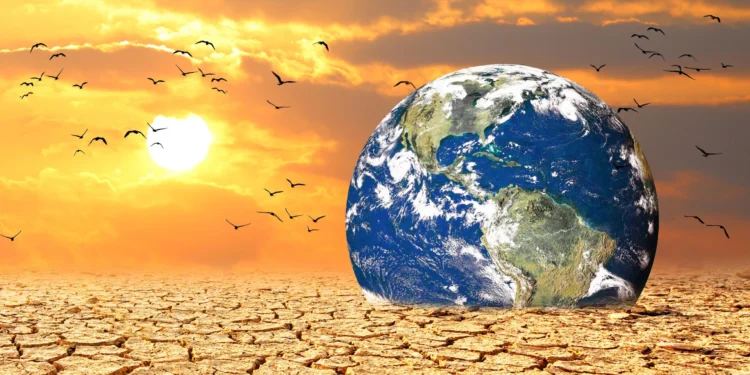By Ebi Kesiena
Global warming is accelerating faster than expected, with scientists warning that the planet has begun to cross dangerous environmental thresholds, starting with the near-irreversible collapse of coral reefs across the world.
The finding, described as the first major “tipping point” in climate-induced ecosystem breakdown, comes from the Global Tipping Points report released on Monday. The study, compiled by 160 scientists from around the world, draws together research estimating when environmental systems could reach points of no return.
The warning comes just weeks before the COP30 climate summit in Brazil, which will take place near the Amazon rainforest, another ecosystem on the brink. The report warns that the rainforest could begin to fail once global temperatures rise beyond 1.5°C, a lower threshold than previously thought, due to ongoing deforestation.
Scientists also expressed concern over the possible disruption of the Atlantic Meridional Overturning Circulation (AMOC), a vast ocean current system that helps regulate global climate and keeps winters in northern Europe relatively mild.
“Change is happening fast now, tragically, in parts of the climate, the biosphere,” said Tim Lenton, an environmental scientist at the University of Exeter and the report’s lead author.
Some hopeful signs
Despite the alarming findings, Lenton pointed to signs of progress in the transition away from fossil fuels, which are the main drivers of climate change. Renewable energy, for instance, generated more electricity globally than coal for the first time this year, according to the think tank Ember.
“Nobody wants to be just traumatised and disempowered,” Lenton said. “We still have some agency.”
Researchers are urging governments meeting at COP30 in November to take stronger action to cut greenhouse gas emissions before it becomes impossible to prevent further irreversible damage.
Average global temperatures have already increased by around 1.3 to 1.4°C above pre-industrial levels, according to United Nations and European Union data, a faster rate of warming than scientists had anticipated.
Warmest years on record
The past two years were the hottest ever recorded on Earth, with marine heatwaves affecting 84 per cent of the world’s coral reefs and pushing many into mass bleaching or death. Coral reefs support roughly one-quarter of all marine life, making their decline a serious threat to global biodiversity.
The report said coral recovery would only be possible if global temperatures were reduced to around 1°C above pre-industrial levels, a goal that would demand rapid and coordinated global action.
“The new report makes clear that each year there is an increase in the scope and magnitude of the negative impacts of climate change,” said Pep Canadell, a senior scientist at Australia’s CSIRO Climate Science Centre.
Based on current national policies, scientists warn that the planet is heading towards approximately 3.1°C of warming by the end of the century, a scenario that could trigger even more irreversible tipping points.




































